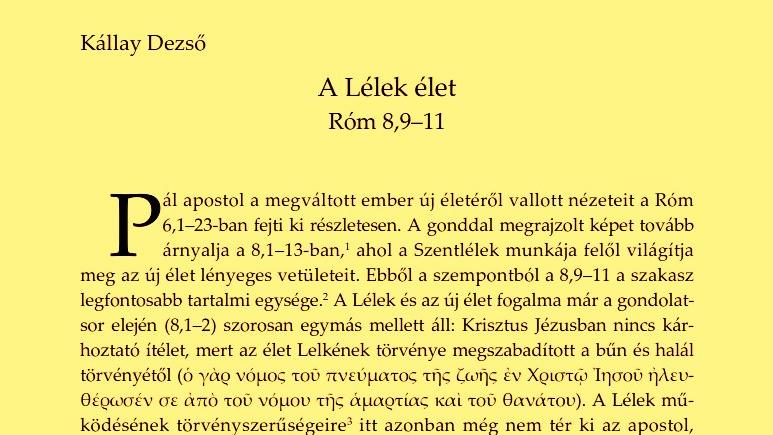Kálvin hatása a 20. század magyar református istentiszteletére és gyakorlati teológiai irodalmára
A magyar református egyház istentiszteleti rendtartásainak korábbi történetében nehéz közvetlen Kálvin-hatást kimutatni. Ez nem egyedülálló jelenség, hiszen a liturgiatörténet bizonysága szerint a világ valamennyi református egyházában sok-sok hatás játszott közre az istentisztelet rendjének kialakításában, s ezek között szigorúan vett Kálvin-hatás csak ritkán és jókora fáziskéséssel érvényesült. Nem egy református egyház, beleszámítva a magyar református egyházat is, az I. világháborúig szinte tökéletesen elszigetelődött a Kálvin hatások elől.
